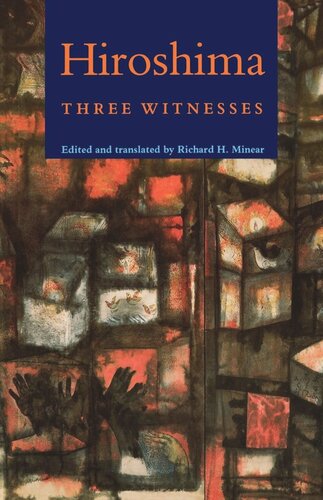

Most ebook files are in PDF format, so you can easily read them using various software such as Foxit Reader or directly on the Google Chrome browser.
Some ebook files are released by publishers in other formats such as .awz, .mobi, .epub, .fb2, etc. You may need to install specific software to read these formats on mobile/PC, such as Calibre.
Please read the tutorial at this link: https://ebookbell.com/faq
We offer FREE conversion to the popular formats you request; however, this may take some time. Therefore, right after payment, please email us, and we will try to provide the service as quickly as possible.
For some exceptional file formats or broken links (if any), please refrain from opening any disputes. Instead, email us first, and we will try to assist within a maximum of 6 hours.
EbookBell Team

4.3
68 reviews"I'll search you out, put my lips to your tender ear, and tell you. . . . I'll tell you the real story--I swear I will."--from Little One by Toge Sankichi
Three Japanese authors of note--Hara Tamiki, Ota Yoko, and Toge Sankichi--survived the atomic bombing of Hiroshima only to shoulder an appalling burden: bearing witness to ultimate horror. Between 1945 and 1952, in prose and in poetry, they published the premier first-person accounts of the atomic holocaust. Forty-five years have passed since August 6, 1945, yet this volume contains the first complete English translation of Hara's Summer Flowers, the first English translation of Ota's City of Corpses, and a new translation of Toge's Poems of the Atomic Bomb. No reader will emerge unchanged from reading these works. Different from each other in their politics, their writing, and their styles of life and death, Hara, Ota, and Toge were alike in feeling compelled to set down in writing what they experienced. Within forty-eight hours of August 6, before fleeing the city for shelter in the hills west of Hiroshima, Hara jotted down this note: "Miraculously unhurt; must be Heaven's will that I survive and report what happened." Ota recorded her own remarks to her half-sister as they walked down a street littered with corpses: "I'm looking with two sets of eyesthe eyes of a human being and the eyes of a writer." And the memorable words of Toge quoted above come from a poem addressed to a child whose father was killed in the South Pacific and whose mother died on August 6th--who would tell of that day? The works of these three authors convey as much of the "real story" as can be put into words.